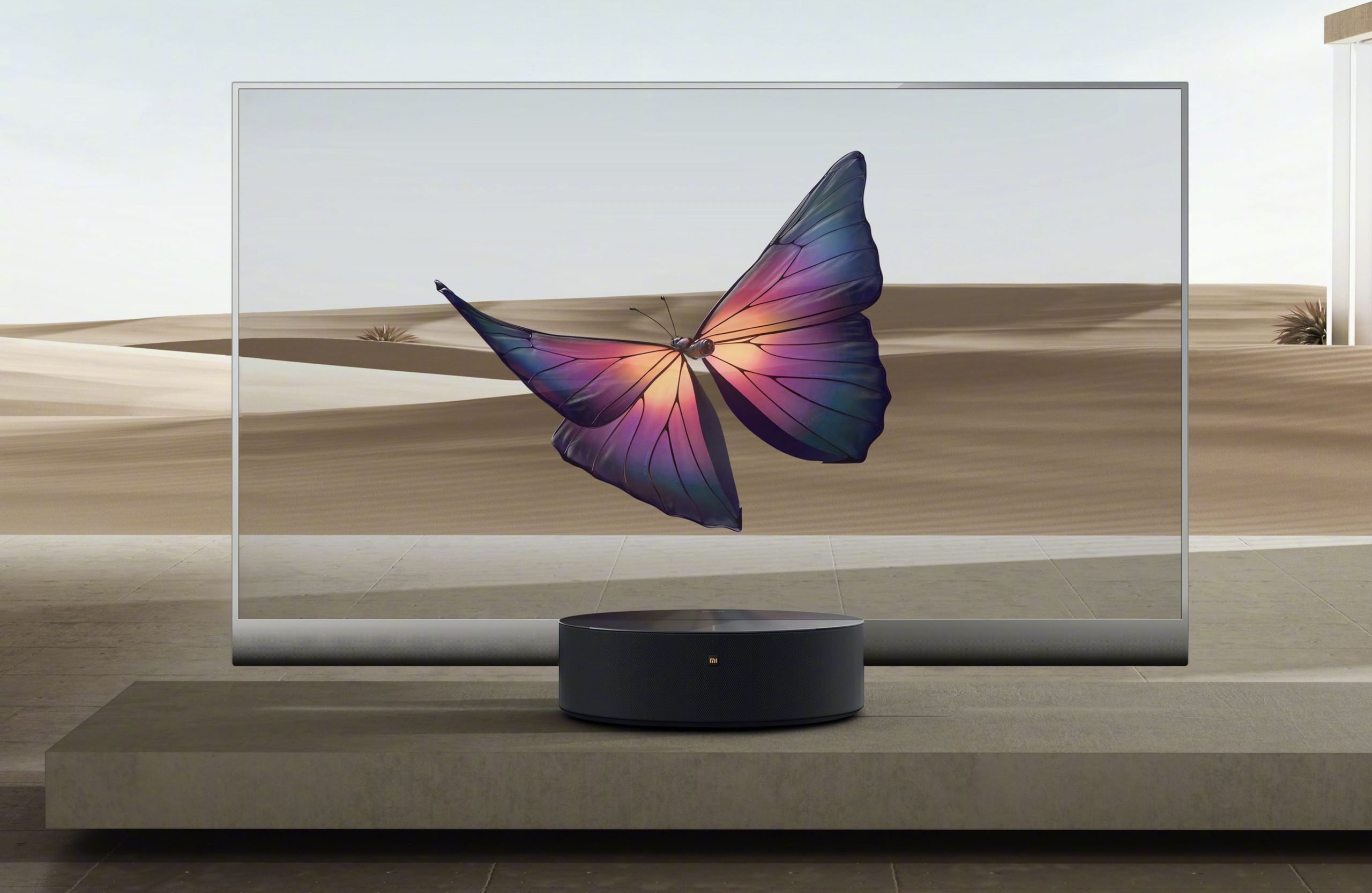A thin glass sheet on a table, is it a very quoted masterpiece of some famous artist? No, it is the new transparent TV of Xiaomi, it was revealed during the celebration of their tenth company anniversary.
Transparent tv: a new horizon of the design
The rectangle of the glass that magically becomes a television, once switched on, it is the Mi TV LUX OLED Transparent Edition. The glass sheet measures 55 inches, it has a very thin frame around it which becomes thicker on the base, where it leans on a low cylinder. The glass thickness is only 5,7 millimeters and audio speakers, as well as all the others electronic components that are needed for its functioning, are integrated on the base.
It is a high level television not only for the innovative design, but even about the technical characteristics. Infact it is equipped with a refresh rate of 120 Hz and speakers Dolby Atmos, to manage all the processor MediaTek 9650 that Xiaomi claims that it is currently one between the most powerful on the marketplace.

The interface then was specifically studied to better use the transparent support of the screen, infact it is possible to realize images with no backgrounds, as well as the ones made during the presentations.
As well as it possible to notice from the video realized by Xiaomi this transparent TV breaks down the limits of the normal televisions, becoming so even an object of design.
But Xiaomi isn’t the only one that experimented this thing, even if it is surely the first one to officialy produced one of them. Even Samsung and LG are planning similar devices and they seem to be to an interesting point of their realization. Right LG while ago presented some transparent panels specifically thought for the commercial showcases.
Sure the Mi TV LUX OLED Transparent Edition isn’t a television for all: with a price of 49,999 yuan, which means about 7.200 dollars, hardly we will soon find it on the mass distribution. It remains so a very fascinating object.
The future is already here
So after the augmented reality of Facebook now the transparent TV, the future seems to arrived. But you will wonder though maybe how the image suspended on a transparent support can be sharp and bright.
The image are at 10 bit with a cover of the space colour P3 of the 93%. The analogy with a normal television is obviusly hard to do. Infact if in dark conditions its view is great and comparable with a normal television, in conditions where the external environment is very bright instead the view isn’t perfect.
In the Mi TV LUX OLED Transparent Edition is infact missed the reflective cathode that the normal OLED television have, which channels the light toward the point of view.
The beautiful transparent TV of Xiaomi has though some problem to solve. Currently it cannot be hanged and with a wall behind the cost is wasted, put it in front of a window will create lightness problems, at least during the day. So we have to understand, besides to be a very interesting and innovative object, if having a transparent television has practical aspects.
Maybe for this reason LG proposed to use it as a showcase, to allow to put prices and adding informations. The usage of a transparent screen can be useful inside a shop, where it can be used to entertain the customers by projecting videos, without though clutter the view. Or it can be used for advertising and, when the graphic allows to do it, to make the object visible in transparency.
Let’s wait so to see how the marketplace of the transparent TVs will evolve, at least until they won’t be more affordable.
This post is also available in:



